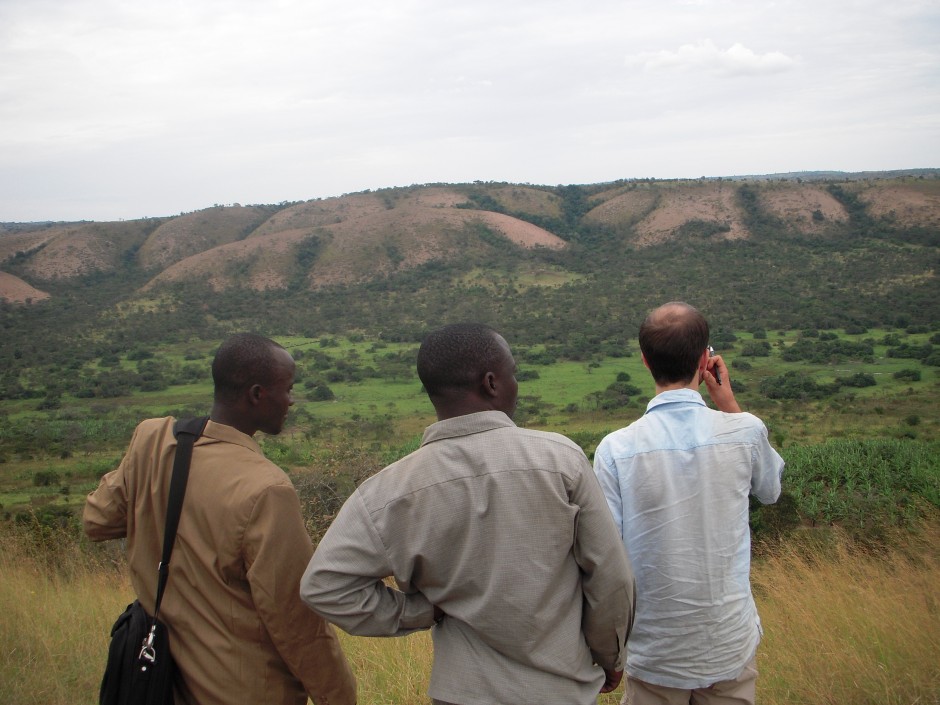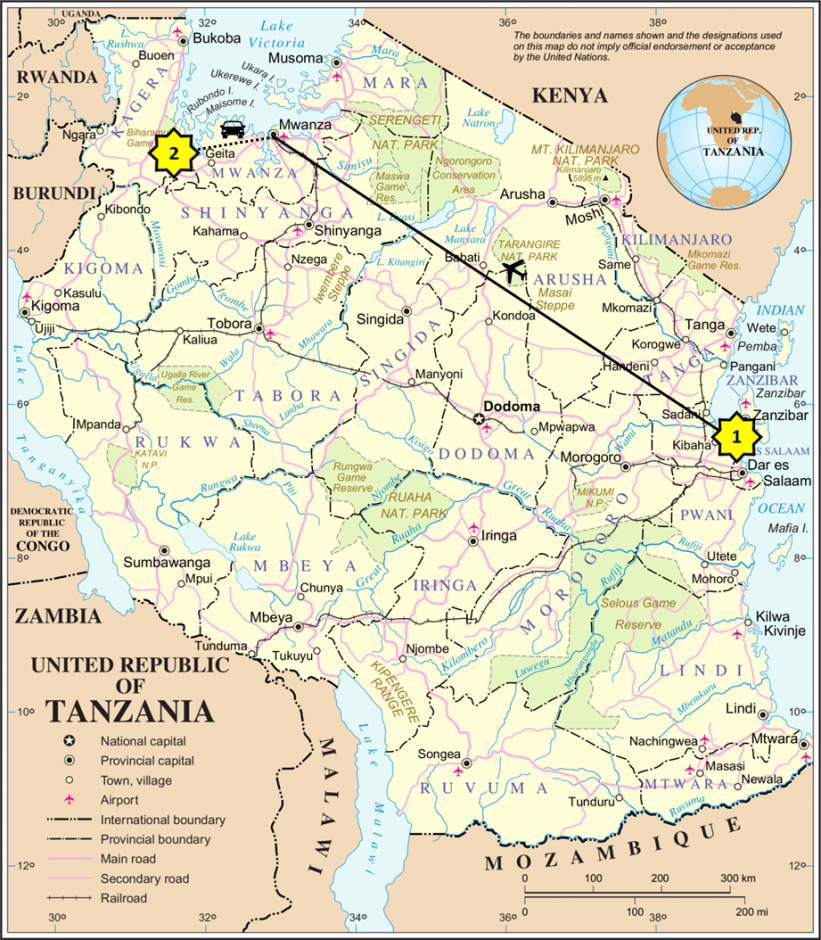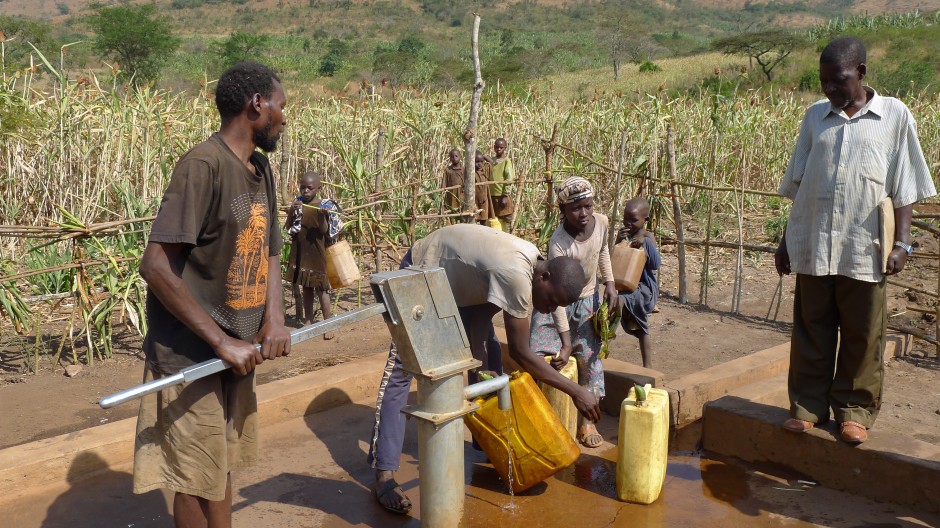In our post yesterday I discussed the upcoming YES Congress and 25th Colloquium of African Geology in Dar es Salaam (1 – on the map), and introduced the way in which GfGD will be contributing. Following these conferences I will be travelling the 1000+ km distance to Mwanza – a key Tanzanian town on the edge of Lake Victoria, and then proceeding (by boat and car) to Chato (2 – on the map) in the Kagera Region to undertake some water/sanitation assessments.
Kagera is a beautiful region of Tanzania, bordering Uganda, Rwanda, Burundi and Lake Victoria. It is also one of the poorest regions of Tanzania – impacted by influxes of refugees from the conflicts in close countries. Issues include health (HIV/AIDS, malaria, diarrhoea), education, income generation and much more. Some statistics suggest that if I was born in Kagera (rather than the UK) I would be about 150 times more likely to have HIV/AIDS, almost 20 times more likely to die before the age of 5, would overall die 37 years younger and make 99.86% less money – affecting food security, education and healthcare.

A preliminary survey of geology and hydrogeology in the village of Kabalekela in the summer of 2009. (Credit: Stephanie Powell, 2009)
An issue of real importance is access to clean water and safe sanitation. Statistics from the World Bank (2010) suggest that in the rural population (much of Kagera), only 44% of people have access to clean, safe water. Although, since 2010, this is likely to have improved across Tanzania – the improvement in places such as Kagera – more than 1000 km from Dar es Salaam – is likely to be less than other locations.
In the midst of what sounds like, and is, a bleak picture – can be found the people of Kagera. Some of the most hospitable, welcoming and helpful people I have worked with. Their desire to bring change, to learn and to share the precious knowledge that they do have of their local environment is inspiring. It is with real excitement therefore that I have the privilege to return here in a few weeks, after first visiting in 2009 and again in 2010. The Eleanor Foundation are sponsoring the implementation of a series of water projects, partnering with the Tumaini Fund.
In a week it will be difficult to fit in everything that could be done. I will be focusing on supporting an assessment of existing water projects and offering advice on possible future work. I will also be trying to better understand the technical capacity of the local team and seeing what resources can be developed that will support their understanding of water resources and water resource management. As we have written about many times, for geology to effectively support development, a range of other skills are necessary – understanding local culture and how to communicate within it, diplomacy, cross-disciplinary work, effective interviewing… and much more. For me this will be an opportunity to ponder these skills in a real-world scenario and share some of my learning with other members of Geology for Global Development (look out for the poster at our second GfGD Conference).
I will be travelling to Kagera from 16-24th August – and will be tweeting on the experience if possible, although this is unlikely. I am very grateful to the Geological Society of London and Geological Society of America for their assistance in getting to Tanzania for the YES Congress/CAG25, making the return to Kagera possible.


